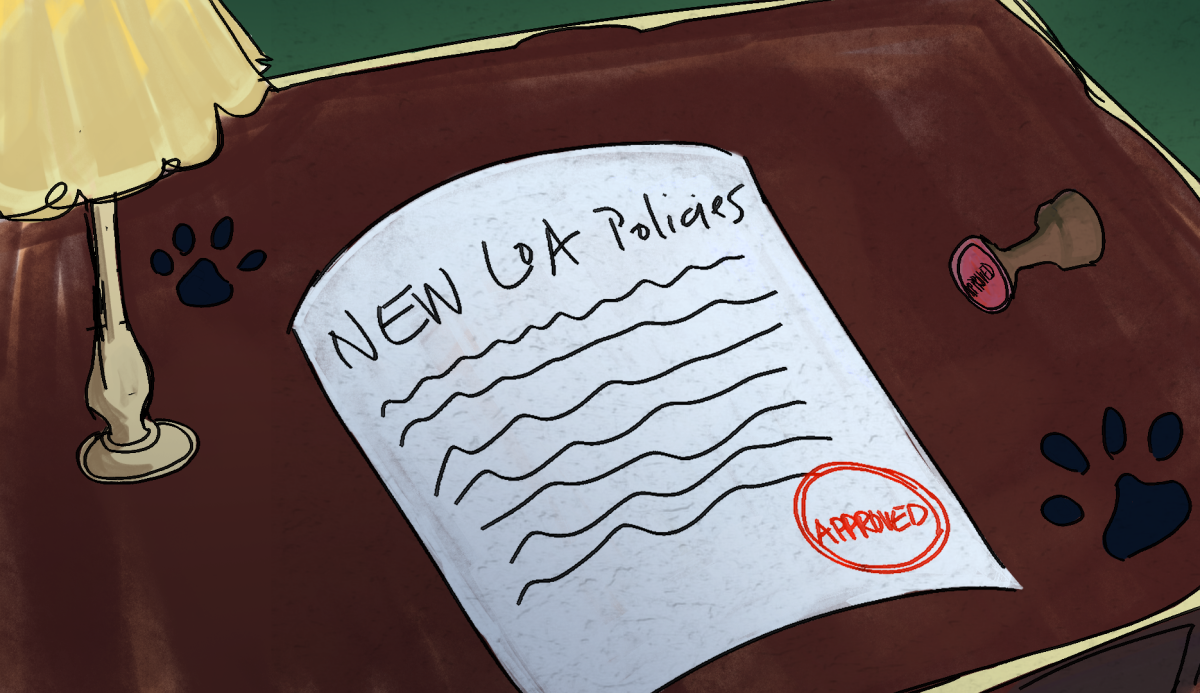Students at NC State will see several updates to the university’s enrollment policies starting this fall, including more flexible drop and add deadlines and a newly approved undergraduate leave of absence regulation — an attempt to better align academic policy with student well-being.
The policy changes, approved by the Chancellor’s Cabinet on July 8, stem directly from recommendations by the student mental health task force, an initiative led by Vice Chancellor and Dean for the Division of Academic and Student Affairs Doneka Scott.
“The charge out of that task force was, these are regulations associated with student success and well-being,” Charles Clift said, associate vice provost of enrollment management and university registrar.
Changes students can expect:
Undergraduate Leave of Absence
For the first time, undergraduates will have access to a formal leave of absence process, a policy that was previously available only to graduate students. Students can now request time away for personal, medical, financial, military or other reasons without needing to reapply for readmission.
“Prior to this, for undergraduate students, when you left, it was kind of a little bit of radio silence from NC State,” Clift said. “You weren’t active. Your email was dropped, you know, which is a lifeline in your account.”
Skyla Carmon, an NC State alum in fine arts, took a leave of absence after her first year of the two-year program. She said the process began with a conversation with her program director about the pressures she was facing and what a leave of absence would mean for her academic future.
“He explained all the nitty-gritty, and I signed a waiver. I didn’t enroll for the next semester, but I stayed in minimal contact with my department,” Carmon said. “I still got program updates, and I knew I’d be welcome back.”
Although she was away from her graduate program, Carmon continued working full-time at the University and appreciated that her leave didn’t have to be widely known.
“My whole business didn’t have to be out on the street unless I communicated it,” Carmon said. “It wasn’t a huge deal, but it mattered to me.”
A new regulation regarding undergraduate students stated students who receive an approved leave can maintain active student status, keep their university email, and re-enroll without submitting a readmission application.
“I didn’t attend NC State [for undergraduate studies], but I remember I had friends at my undergrad university who took that option because of mental health reasons,” Carmon said. “There was obviously a stigma around it, as far as needing help and having to admit to that help. It’s kind of wild to hear that NC State is just now providing that for undergraduate students, but I’m happy that they’re being given that option.”
Leaves can be granted for up to two regular semesters, and the policy includes a separate process for students called to active military duty.
Extended Drop and Withdrawal Deadlines
The deadline to drop a course without needing permission has been moved from the 50% mark of the semester to 60% — the maximum allowed under the UNC System’s Fostering Undergraduate Student Success regulation.
“Some of the feedback we got directly from the review in the Student Mental Health Task Force was that students didn’t have their midterm grades back at that [previous] drop deadline, so now we’ve got a 60% point,” Clift said. “Some of this comes back to well-being — it’s a stressful decision, and to have your midterm grade in your pocket when you’re making a decision to drop or add is important.”
Additionally, the window to add a class without instructor permission now extends through the sixth day of the fall and spring terms, giving students the benefit of a weekend and Monday to adjust their schedules.
“With classes starting on Monday, being able to add through the six days gives you a weekend and a Monday to make decisions,” Clift said. “It’s three additional days, even though it’s just one class day. I think it will make a difference in students being able to adjust their schedules and hopefully find the right mix.”
Term Withdrawal Review
Responsibility for reviewing undergraduate withdrawal requests has shifted from the dean’s office to a designated staff member within each academic college.
The policy updates will take effect starting in the fall 2025 semester. As the University implements these changes, students are encouraged to review the revised regulations, consult with academic advisers and use available campus resources when making decisions about course schedules, withdrawals or leaves of absence.
Clift emphasized the importance of students having a chance to make these decisions in a well-informed manner.
“For students making tough decisions … having that extra time and clarity can make all the difference,” Clift said.








